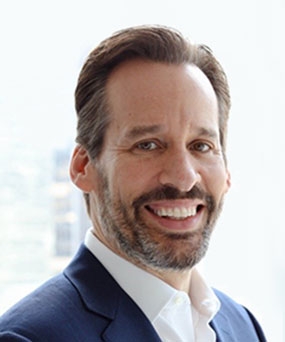As an entrepreneur, Steven Feldman ’87 has his sights set on gold
After graduating with an undergraduate degree in business from the Wharton School, Steven Feldman ’87 saw many of his peers going directly to jobs on Wall Street. He decided to pursue a law degree instead. Feldman credits his mother—“a woman of letters, a bit before her time”—with imbuing him with “this sort of romantic notion of being a lawyer.” Now, with 23 years at Goldman Sachs under his belt and the leader of three successful companies, Feldman maintains that his experience at the Law School was critical to his success both in finance and as an entrepreneur.
“It made me thorough, it made me think, it made me write better, it made me argue better, it made me disciplined, it made me sacrifice, and it made all of that part of who I was,” Feldman says. “I built a skill set that so few businessmen seem to have—and it’s informed my life, really. I have always been all about the work, and that really started for me in law school.”
After graduating, Feldman did initially go into Big Law, working as an associate in the real estate group at Skadden, Arps, Slate, Meagher & Flom. “I picked real estate,” he says, “because it was tangible… Everyone knew what it was. You lived in a house, you went into an office building, you’re in New York and the skyscrapers are our environment.” And even then, his ethos of hard work was evident: in his first year, he says, he billed more than 3,000 hours.
But “the siren of Wall Street” was calling, Feldman says. After a 20-month tenure at Skadden, he left for Goldman Sachs’ real estate banking group. Feldman says he enjoyed the variety of work he was able to do there, including development deals and buying and selling office buildings. All of it, he notes, was highly driven by negotiation and—and his legal training gave him an edge.
“What a lot of business people don’t have is the ability to sit down with a 200-page document and read it before a negotiation,” he says. “I still have [that ability]—I don’t have to do it anymore, but I still do it anyway.”
While at Goldman Sachs, Feldman oversaw the development of the company’s headquarters building, which was the first large building constructed in New York’s financial district near Ground Zero after 9/11. He also co-founded the firm’s global infrastructure investing fund, which ultimately reached $10 billion in assets under his leadership.
However, Feldman wanted to challenge himself as an entrepreneur. He refers to his tenure at Goldman Sachs as “the institutional commerce chapter” of his career: “You may know how good you are, but you always have the help of a 100-plus-year-old brand in Goldman… and in many ways you’re just a custodian of that brand,” he says.
In 2009, Feldman co-founded Gold Bullion International (GBI), a fintech company that builds software for financial institutions to buy and sell precious metals. GBI’s customers now include Merrill Lynch, UBS, and other major investment companies. Soon thereafter, he also founded Goldcrest Farm Trust Advisors, a farmland asset management company with over $300 million in assets under management.
Feldman’s colleagues say that the companies are successful not just because of his financial acumen, but also because of his leadership and people skills. “He treats everyone with respect, and he knows how to motivate each individual, almost like a good coach does,” says Marc Scher, chief operating officer of GBI. Feldman says that he sees that role as an important commitment. “There are 65 people, many of whom started to work at the respective companies because I’ve asked them to do that, and I feel like that comes with a responsibility,” he says. “To provide them with, to the best of my ability, with good careers – where they learn, improve, move up and get paid fairly over time.“
More recently, Feldman also became the co-founder of Auvere, a 22- and 24-karat gold jewelry business. “We make beautiful handcrafted jewelry, in a way where the true and enduring value of gold is featured,” he explains, “so it’s the sort of jewelry that has a real, discrete and growing value, as opposed to costume jewelry or even diamonds, which have only subjective, and often declining values.”
For Feldman, Auvere is perhaps the most exciting of his businesses. “My whole life I’ve been in financial services, and I make investments, and I make technology, but I’ve never made anything beautiful that is so highly coveted by customers,” he says. But he adds that he gets great satisfaction from running all of the companies he has founded: “I love waking up in the morning and doing my job—I look forward to it, and when I go on vacation, I actually miss it.”
Posted February 20, 2018


